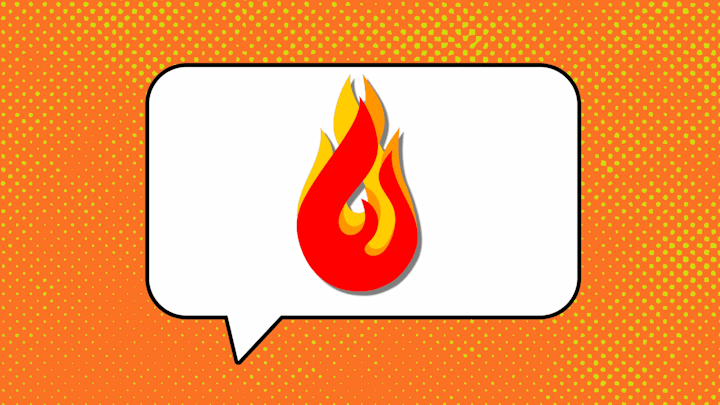From calm to ink, here are some words we use that—surprisingly enough—can be traced back to words for heat.
1. Calm
Calm is related to Old Spanish and Portuguese calma, which meant “heat of the day,” according to the Oxford English Dictionary. That was the time when everything stopped for a while so people and animals could find some shade; the time when everything got quiet and calm. It comes from the Latin cauma for “burning heat.”
2. Day
Day comes from Old English daeg, which is related to the words for “day” in other Germanic languages (dag in Swedish Danish, Tag in German). Etymologists have traced it back to a root that also gave rise to Sanskrit dah, “to burn.” It shows up with its “hot” sense in Lithuanian dagas, “hot season,” and Old Prussian dagis, “summer.”
3. Bath
Bath can be traced back to an Old Germanic base bajo-, meaning “to foment,” and related to the Latin fovere, meaning “to warm something up.” It originally had the primary meaning of submersion in hot liquid and then came to be used for a bath in liquid of any temperature.
4. Breed
Breed is related to the Old Germanic root bro-, “to heat something up,” like when birds warm their eggs to help them hatch.
5. Chafe
Chafe comes from the French chauffer, “to warm.” It was used in English in the sense of warming things (this is how we get chafing-dish), but also for rubbing the limbs in order to warm them up, which led to the sense of “irritation through friction.”
6. Flagrant
Something that is flagrant is glaring and obvious, like … something that is on fire. It comes from the Latin flagrare, “to burn.” Flagrant was indeed used to mean “fiery” for a time, but now the metaphorical meaning seems to be more popular.
7. Effervescence
Effervescence comes from the Latin exfeverscere, “to begin to boil,” which is based on fervere, “to be hot.” (The root also gives us fervid, fervent, and fervor.) The word has lost the hot part of its sense, leaving us with just the bubbly part.
8. Ink
Ink can be traced all the way back to the Greek form that also gave us encaustic, meaning “to burn in,” and referring to the process of burning wax paints onto objects to make the colors stay. Thankfully, we don’t have to use fire to burn our words onto the page anymore.
9. Phlegm
For as long as it’s been in English, phlegm has been associated with mucus and phlegmatic humor (from the theory of the four humors). The phlegmatic humor has always been thought of as the cold, clammy one, but the word phlegm relates back to the Ancient Greek phlegma, which referred to inflammation or the clamminess caused by being heated, which in turn relates back to the Ancient Greek for “burn” or “blaze.”
A version of this story ran in 2013; it has been updated for 2022.
